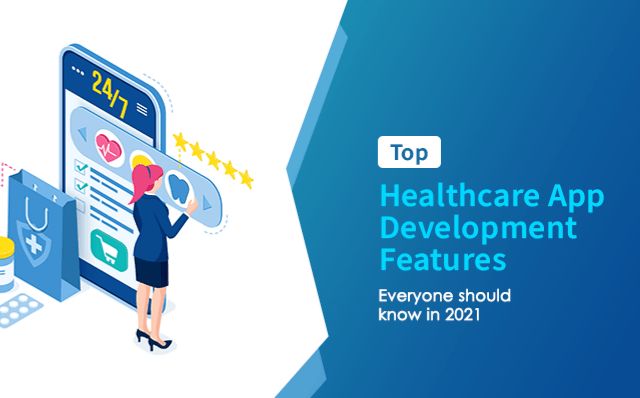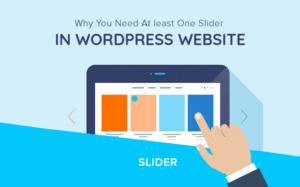As we have entered the digital age, we have become more and more attached to our smartphones and other devices, and not just to keep up with trends or for sentimental reasons. Smartphones have become so integrated with our lives that we have increasingly relied on it to manage our schedules, organize work and business processes, stay informed, and connected through social networks, forever changing our way of we live.
In the past years, we have seen an innovation enter the ever-growing health industry—Mobile Health (mHealth). mHealth is the support and use of mobile devices and apps in medical healthcare and brings the health and medical care industry into the digital age. TechTarget defines mHealth as the use of mobile phones and other wireless technology in medical care. Medical professionals are now adopting mHealth and integrating mobile medical apps into their practices at an astounding rate.
So aside from just staying in touch with the rest of the world through our smartphones, we can now expect personalized health services through mobile medical apps that can shape our health, well-being, and our interactions with medical practitioners and medicine.
This revolution in the mHealth industry has launched several mobile medical apps available for patients, health professionals, and health institutions for a variety of uses. Beyond counting calories and serving as heart monitors, applications can now check hospital medical records on file. Mobile apps can enhance how physicians monitor several aspects of their patient’s health and can even conduct consultations and examinations through smartphones. Some medical apps can also help identify various ailments, make all the needed measurements, and gather test results in no time.
Zebra Technologies conducted a study in 2018, projecting that in 2022, 98% of hospital doctors and 97% of nurses will make use of mobile medical apps and devices to treat their patients. As of now, these mobile medical apps are helping reduce errors in administering medication done by nurses to their patients, assist lab technicians to label specimens properly, and decrease avoidable medical mistakes. In the future, doctors and nurses will be able to use their mobile devices to access medical and drug databases, laboratory results, and electronic health records (EHRs).
Aside from educating consumers about preventive healthcare services, the use of mobile medical apps has now expanded to disease surveillance, treatment support, epidemic outbreak tracking, and chronic disease management. Underserved areas with large populations can receive quick information and given support in terms of an impending or ongoing one because the majority of these populations now have access to mobile phones. mHealth and mobile medical apps have broken new ground in the health industry, exceeding expectations, and presents the vast potential for the industry in the future.
Patients’ interactions with their doctors are further improved as apps empower them to have more knowledge and say in their medical decisions.
Benefits of Mobile Medical Apps:
Convenience
Multiple wearable devices are now available to help end-users (not limited to patients) to track and manage health data without physically going to a hospital or medical clinic. Fitbit, Apple, Samsung, Garmin, and many others have manufactured wearable devices to monitor the health, diet, sleep, and well-being of end-users makes them more aware and conscious of their general well-being more than ever before.
Availability
You won’t run out of apps to choose from either, because according to research2guidance, the mHealth app market will grow by 15% to reach $31 billion by 2020. As of this year, there are 165,000 mobile medical apps available on the market. Medical professionals continue to create mobile medical apps for specific uses and work hand-in-hand with manufacturers to deliver mobile medical apps and mobile technology to serve end-users better. Even remote areas that often lack attention, accessibility, and resources can enjoy immediate treatment and information with the help of these apps. mHealth technology has increased ground support for local medical professionals and humanitarian workers serving in these remote, underprivileged locations.
Connectivity
Mobile medical apps also allow patients to have online consultations with their doctors, secure messaging systems that inform loved ones when their relative is out of surgery and enhances communications amongst practitioners. More and more medical practitioners are equipping themselves with tablets in the office and hospital to ensure their available access to their patients. When time is of the essence, mobile medical apps and the mHealth technology helps doctors save more lives as they are enabled to give help immediately and remotely, preceding needed medical attention the patient needs.
Disadvantages of Mobile Medical Apps
Privacy
Privacy can be an issue if patients and other end-users are not careful to read privacy policies and are left unaware of how vendors and other parties handle their data. mHealth apps also need to comply with health insurance and privacy policies that can change from country to country. An example of such is the HIPAA (Health Insurance Portability and Accountability Act of 1996) that aims to protect users’ data privacy and medical information. Laws such as these allow countries to ensure their people are protected from threats such as data breach and ransomware attacks on health insurers and providers. The problem is when security checks are absent in a nation, and the mobile medical apps do not take the initiative to provide this security for their end-users.
Make sure to get total protection for your mobile app and other devices where you encode your medical data, such as BitDefender, an anti-virus protection software with excellent detection capabilities and system performance offering real-time protection from malware, spyware, adware, and provides dedicated ransomware protection. It also has an anti-phishing, anti-fraud, and a rescue mode, and provides users with safe online banking, webcam protection, firewall, social network protection, password manager, anti-theft, data shredder, among its many security features.
Inaccuracy
Mobile medical apps such as blood pressure monitors that ask users to press their finger on the screen or camera may give inaccurate information because of unproven research. Even if the research is solid, the poor quality of mobile devices used can still affect the accuracy of the readings. Medical health experts warn against totally relying on mobile medical apps to monitor your body’s condition without the supervision of your healthcare professional.
Absence of Professional Opinion
Even if these mobile medical apps continue to get upgraded to provide better services and accuracy, users still have to remember that this technology is meant to enhance the services within the medical healthcare industry, and NOT to replace them. Doctor’s consultation is still highly advised, whether face-to-face or remotely, or through the use of modern mHealth apps and devices available.
The Future of mHealth industry and Mobile Medical Apps:
The future is looking robust and healthy for the mHealth sector, and mobile medical apps will continue to multiply and improve in the years ahead. These are some future trends that developers see in the future of the mobile health industry:
1. 79% of respondents to a survey say that they feel more connected to healthcare providers who spend minimal time on paperwork during visits.
2. 93% of physicians find value having a mobile health app connected to Emergency Health Services.
3. 31% of surveyed organizations offer a specific app for patients, while 30% are currently developing an app.
4. 61% of people have downloaded a mobile medical app.
So we cannot underestimate the value of mobile medical apps. Healthcare applications take a comprehensive understanding of health responsibilities to a new level. In the foreseeable future, healthcare applications will continue to take a more active role in managing the medical duties of attending physicians and in boosting the level of quality, accessible, on-demand healthcare.










